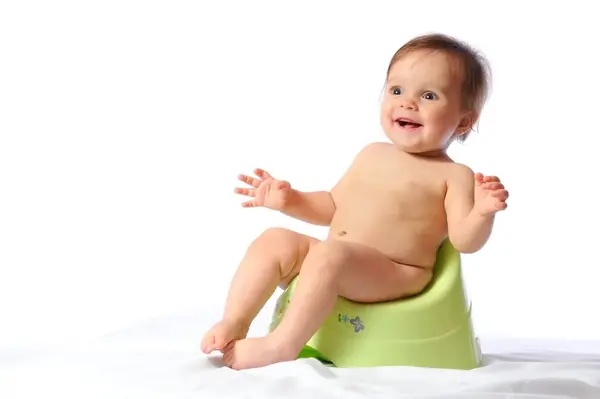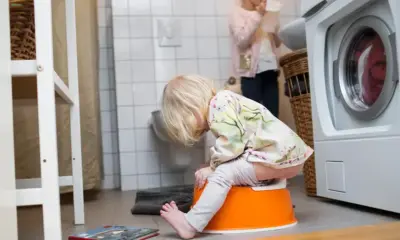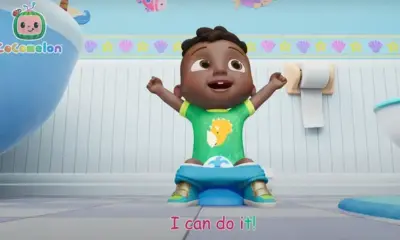Bathing & Diapering
Elimination Communication: Early Potty Training for Babies

Elimination Communication: A Guide to Infant Potty Training
Elimination communication, also called infant potty training, introduces babies to the toilet early—often from birth to four months old. This early potty method reduces diaper use and builds strong parent-child communication.
What Is Elimination Communication?
Elimination communication (EC) focuses on understanding your baby’s natural cues for peeing or pooping. Parents respond quickly and consistently.
You observe patterns, offer the potty at key times, and use cue sounds like “sss” or phrases such as “go potty.”
Many parents use diapers occasionally, especially at night or while traveling. However, EC can reduce overall diaper use significantly.
Benefits of Infant Potty Training
Infant potty training may strengthen your bond with your baby. Constant observation deepens your understanding of their needs.
It also encourages independence. As your child grows, they often enjoy taking control of their potty routine.
This method may reduce diaper rash and save money by cutting down on disposable diaper use.
Does Elimination Communication Actually Work?
Yes, if your goals include fewer diapers and early toilet awareness. However, don’t expect perfection or zero accidents.
Some babies quickly recognize their body’s signals. Others may take longer or show less interest in using the potty early.
Expert Opinion
Dr. Liz Donner, a pediatrician, supports trying EC if parents remain patient and flexible. Every baby develops differently.
If EC causes stress or doesn’t work for your baby, it’s okay to pause and revisit when your child is more ready.
How to Practice Elimination Communication
1. Start Early
Start between birth and four months for best results. Older babies can learn, but they may take longer.
2. Watch for Cues
Track your baby’s bathroom habits. Look for signs like fussing, grunting, or staying still before they go.
3. Offer the Potty
When you notice signs, hold your baby over a toilet, potty, or bucket. Support them gently in a squat position.
Use a cue sound or phrase while they go, helping them associate that sound with elimination.
4. Handle Accidents Calmly
Accidents happen. Stay calm and treat each one as a learning opportunity rather than a setback.
5. Adapt at Night
Diaper your baby or keep a potty nearby. Try placing them on it before feedings or if they stir at night.
Be Flexible and Positive
Use diapers as needed. Cloth diapers help your baby feel when they’re wet, which may support awareness.
Don’t punish or pressure. Instead, keep the process relaxed, gentle, and enjoyable for you and your baby.
Is It Right for Your Family?
EC requires time and patience. Working parents may find it challenging to stay consistent, especially during the day.
It’s okay to practice EC part-time—like in the evenings or on weekends. Even limited practice can help.
Make sure your childcare provider is on board if you want to try EC consistently.
Know the Challenges
- Babies develop at their own pace. Some aren’t ready for potty awareness until later.
- Support may be limited. Friends or relatives may not understand the method.
- Messes happen. Keep cleaning supplies handy for occasional accidents.
Despite these challenges, many parents report success and satisfaction with early potty training.
Want more helpful parenting guides?
Explore more news and tips for raising happy, healthy babies—only on our website!






